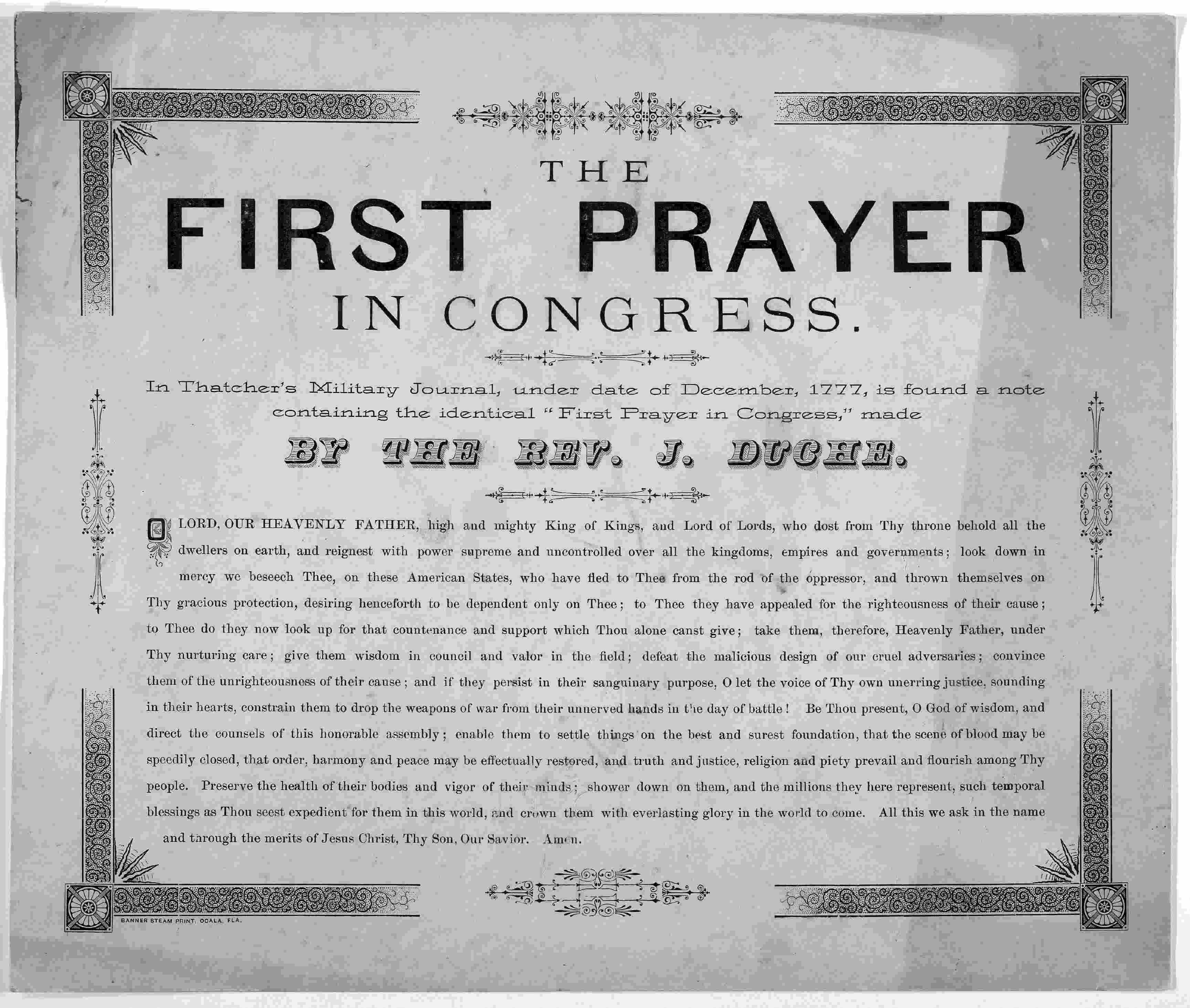 WASHINGTON — A federal appeals court has upheld a lower court ruling in concluding that the chaplain for the U.S. Congress did not discriminate against a well-known professing atheist in declining to permit him to present a secular invocation before the legislature.
WASHINGTON — A federal appeals court has upheld a lower court ruling in concluding that the chaplain for the U.S. Congress did not discriminate against a well-known professing atheist in declining to permit him to present a secular invocation before the legislature.
“Even though we accept as true Barker’s allegation that Conroy rejected him ‘because he is an atheist,’ the House’s requirement that prayers must be religious nonetheless precludes Barker from doing the very thing he asks us to order Conroy to allow him to do: deliver a secular prayer,” wrote Judge David Tatel on behalf of the unanimous three-judge panel of the District of Columbia Appeals Court.
“In other words, even if, as Barker alleges, he was actually excluded simply for being an atheist, he is entitled to none of the relief he seeks,” he said. “We could not order Conroy to allow Barker to deliver a secular invocation because the House permissibly limits the opening prayer to religious prayer.”
As previously reported, Dan Barker, the co-president of the Wisconsin-based Freedom From Religion Foundation (FFRF), filed suit against House Chaplain Patrick Conroy and Speaker Paul Ryan in 2017 — on the National Day of Prayer — after he was prevented from delivering an atheist invocation before Congress.
According to FFRF, Rep. Mark Pocan, D-Madison, had sponsored Barker to deliver the invocation as a Congressional guest in February 2015. Conroy’s office notified Barker that all guest chaplains must be “ordained by a recognized body in the faith in which he/she practices” and must present a copy of their ordination certificate as proof. He also advised that the invocation must address a “higher power.”
“This is a substantive requirement—not a mechanical or check-the-box requirement,” Conroy advised. “For example, I do not invite member-recommended individuals who have obtained an Internet-generated ordination to serve as guest chaplains, even if they hold deep and long-standing religious beliefs.”
Barker had formerly served as a minister in California, being ordained in 1975, but proclaimed his atheism in 1984 and no longer is affiliated with any Christian denomination. He still uses his ordination, however, as a means to officiate weddings.
Believing that this was sufficient, Barker consequently submitted his ordination certificate to Conroy’s office. In regard to addressing a “higher power,” he provided Conroy with the text of his planned invocation, stating that he believes there is no higher power than “we, the people of these United States.”
But Conroy was not convinced that Barker qualified under the rules about guest chaplains, and the matter remained outstanding for nearly a year when Conroy advised Barker in January 2016 that he was denying his appearance because he has “announced his atheism publicly” and is not a true “minister of the gospel.”
“Daniel Barker was ordained in a denomination in which he no longer practices,” an email from Conroy’s office outlined.
Barker later filed suit, alleging that Conroy had violated his rights by prohibiting him from delivering an invocation. He specifically contended that the rejection was a violation of the federal Religious Freedom Restoration Act (RFRA), which states that the government must not “substantially burden a person’s exercise of religion” unless there is a “compelling government interest” in doing so.
In October 2017, U.S. District Judge Rosemary Collyer sided with the government, finding that neither the Establishment Clause of the First Amendment or the RFRA had been violated.
“Taking as true Mr. Barker’s allegations that atheism is his religion and assuming, but not finding, that RFRA applies to the House, the court finds Mr. Barker has failed adequately to allege a claim under RFRA because he fails to allege a substantial burden,” she wrote. “A substantial burden ‘exists when government action puts ‘substantial pressure on an adherent to modify his behavior and to violate his beliefs.’”
Barker appealed, but on Friday, the D.C. Circuit Court of Appeals upheld Collyer’s ruling, although analyzing the matter differently.
“[The Supreme Court prayer rulings of] Marsh and Town of Greece leave no doubt that the Supreme Court understands our nation’s long-standing legislative prayer tradition as one that, because of its ‘unique history,’ can be both religious and consistent with the
Establishment Clause,” Tatel wrote. “And although the court has warned against discriminating among religions or tolerating a pattern of prayers that proselytize or disparage certain faiths or beliefs, it has never suggested that legislatures must allow secular as well as religious prayer.”
“In the sui generis context of legislative prayer, then, the House does not violate the Establishment Clause by limiting its opening prayer to religious prayer,” he stated.
FFRF expressed disappointment in the ruling, opining that the courts are treating atheists as “second-class citizens.”
“I am deeply dismayed that atheists and other nonbelievers are being openly treated as second-class citizens,” Barker said in a statement. “Our government is not a theocracy, and it needs to stop acting like one.”
The first prayer delivered before the Continental Congress, offered by Jacob Duche of Christ Church of Philadelphia on Sept. 7, 1774, read, “O Lord our Heavenly Father, high and mighty King of kings, and Lord of lords, who dost from thy throne behold all the dwellers on earth and reignest with power supreme and uncontrolled over all the kingdoms, empires and governments: Look down in mercy, we beseech Thee, on these our American states, who have fled to Thee from the rod of the oppressor and thrown themselves on Thy gracious protection, desiring to be henceforth dependent only on Thee.”
The invocation concluded “in the name and through the merits of Jesus Christ, Thy Son and our Savior. Amen.”
Become a Christian News Network Supporter...


